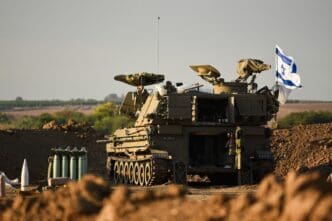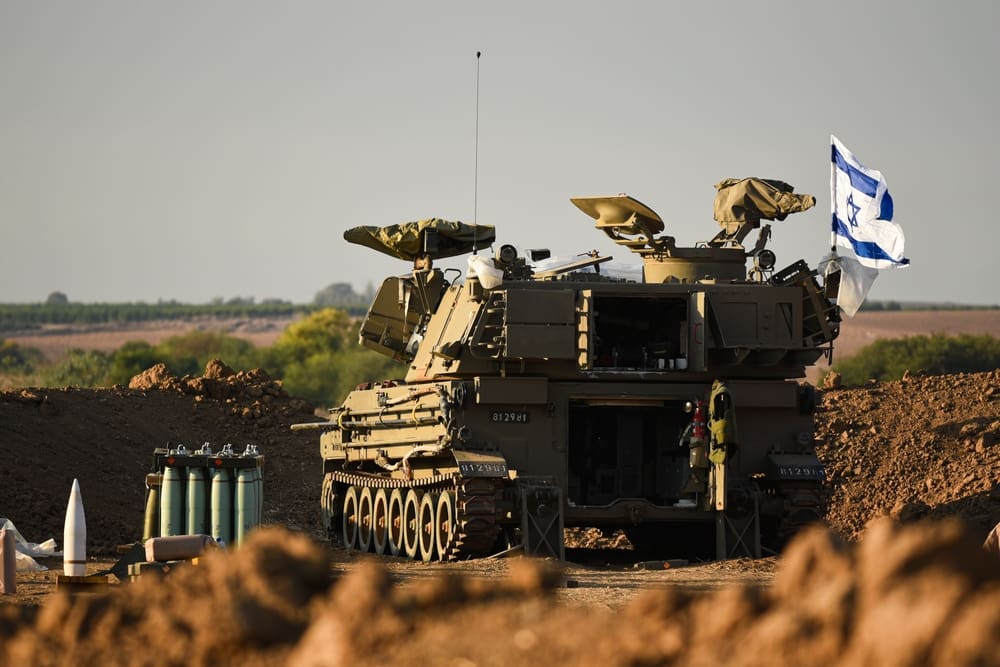Executive Summary
The Story So Far
Why This Matters
Who Thinks What?
Israeli jets conducted a strike on a residential building in Doha, Qatar, on Tuesday evening, resulting in the deaths of five Hamas members and a Qatari security official. The incident occurred just hours before a critical follow-up meeting aimed at advancing a new U.S.-led ceasefire and hostage deal in Gaza, prompting immediate condemnation from Qatari officials and raising concerns among America’s Arab allies about regional security guarantees.
Qatari Condemnation and Mediation Efforts
Qatar, a key U.S. ally and a central mediator in efforts to end the conflict in Gaza, expressed a profound sense of shock and betrayal following the strike. Qatar’s Prime Minister Sheikh Mohammed bin Abdulrahman bin Jassim Al Thani, who had personally met with Hamas’ chief negotiator Khalil Al-Hayya to push for the ceasefire, described the attack as “state terror.”
In an interview, the Prime Minister stated that Israeli Prime Minister Benjamin Netanyahu had “killed any hope” for the hostages and undermined “any chance of peace.” He further accused the Israeli leader of breaking “every international law” and asserted that he must be “brought to justice.” Despite the strong reaction, Qatar has not officially closed the door on mediating peace, though talks are reportedly in limbo.
U.S. Alliance and Security Implications
The strike on Doha has prompted questions regarding the assumed benefits of aligning with the United States among Gulf nations. Qatar had hosted President Trump just four months prior, engaging in significant deals and discussions. The tiny Gulf state also hosts the Al Udeid military base, the largest U.S. military facility in the region, which was previously targeted by Iran in June.
HA Hellyer, a scholar at the Carnegie Endowment for International Peace, suggested that nations across the Gulf might now be “wondering what they can do in order to deter future attacks” and “what sort of security architecture they need to now invest in instead of relying on a partner that hasn’t been able to protect them even from one of its own allies.”
Regional Repercussions and Future of Diplomacy
The incident’s impact extends beyond Qatar’s borders, with nations like Saudi Arabia and the UAE, which have historically pivoted politically and financially toward the U.S., now re-evaluating their positions. These countries had pledged substantial deals during Trump’s May visit, upholding their part of the agreements.
Hasan Alhasan, Senior Fellow of Middle East Policy at the International Institute for Strategic Studies, noted that such a risk is one “not many countries in the region will be willing to stomach in return for a mediating role.” The strike has reinforced a long-held belief in the region that Israel intends to sabotage peace talks, potentially discouraging future mediation efforts by countries like Oman and Saudi Arabia.
U.S. Response and Trust
President Trump is reportedly “not thrilled” by the strike, which has damaged trust between the U.S. and its Gulf partners. The full extent of this damage remains unclear and is largely contingent on President Trump’s future reassurances to allies and his public messaging to Israel. The incident also raises a broader question about the discouraging effect it will have on future diplomatic endeavors in the region.
The Israeli strike in Doha has created a complex diplomatic challenge, jeopardizing ongoing peace efforts, straining U.S. relations with key Gulf allies, and prompting a re-evaluation of security dynamics across the Middle East.








